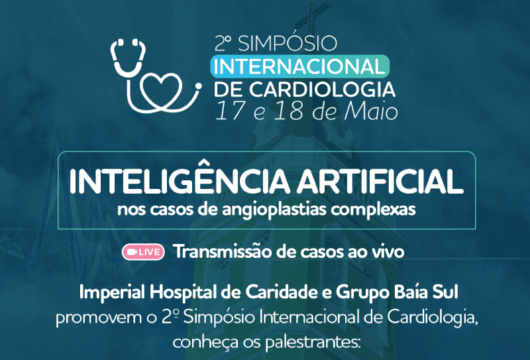This last year, new data in pharmacology gave way to changes in practices and new hypotheses, when not simply further justified the already existing evidence.
In this new editorial section, we share the most relevant of last year’s works to keep you up to speed on the main topics in the field.
The Most Relevant Articles of 2021 in Pharmacology
01- Latest News on AHA/ACC Primary Prevention Guidelines
Most cardiovascular diseases and mortality come down to 4 years of unhealthy habits (smoking, poor diet, obesity and sedentarism) and 3 major risk factors (cholesterol, hypertension, and diabetes).
Read more HERE
In patients at high bleeding risk with drug-eluting stents, the duration of dual antiplatelet therapy has been subjected to ongoing review. Guidelines from the European Society of Cardiology (ESC) and the American College of Cardiology (ACC) suggest shortening this treatment to a maximum of three to six months (Class IIb). The ESC establishes a difference depending on whether the condition is acute or chronic.
Read more HERE
03- Reducing Chronic Inflammation in Atherosclerosis with an Old Drug
Inflammation plays a crucial role in atherosclerosis progression. Recently, the COLCOT study has shown the benefits of colchicine in cardiovascular events.
Read more HERE
04- AAS vs Warfarin in Low Risk TAVR
We are still discussing the adequate antithrombotic scheme after transcatheter aortic valve replacement (TAVR). Additionally, we are treating a much wider array of patients ranging from low risk to inoperable.
Read more HERE
05- Xience Receives CE Mark for Short and Ultrashort DAPT Schemes
Dual antiplatelet therapy (DAPT) one month after angioplasty with Xience stent was approved in Europe for patients with high risk of bleeding.
Read more HERE
06- How to Discontinue Antiplatelet Therapy Prior Non-Cardiac Surgery
Both the indication and discontinuation of antiplatelet therapy to balance ischemic-bleeding risks has been left to physician criterion. However, leaving the decision to one single specialist might not be the best. This is when the team’s role becomes essential.
Read more HERE
07- ACC 2021 | HOST-EXAM: Clopidogrel vs ASA monotherapy post DAPT in PCI patients
Clopidogrel monotherapy after dual antiplatelet therapy (DAPT) was associated with reduced mortality, MI, stroke, and other events in patients receiving PCI compared against aspirin monotherapy (ASA).
Read more HERE
08- Single or Dual Antiplatelet Therapy in Stroke or Transient Ischemic Attack?
Antiplatelet therapy is key to prevent thrombotic events after a transient ischemic attack (TIA) or ischemic stroke. The role of aspirin is well established in this scenario, but there is emerging evidence for a short period of dual antiplatelet therapy (DAPT). Now, can this strategy avoid recurrent strokes without paying a price in terms of bleeding?
Read more HERE
09- ACC 2021 | TALOS-AMI: De-escalating from Ticagrelor to Clopidogrel after One Month
After one-month dual antiplatelet therapy (DAPT) with aspirin and ticagrelor, a net clinical benefit was observed when de-escalating to clopidogrel in acute myocardial infarction (AMI) patients treated with PCI.
Read more HERE
10- Very Short Dual Antiplatelet Therapy after Complex PCI
The 1-month outcomes of dual antiplatelet therapy (DAPT) followed by clopidogrel monotherapy were comparable to 12-month DAPT in patients with both simple and complex PCI. There was no significant interaction between DAPT period and procedure difficulty.
Read more HERE
11- Dual Antiaggregation De-Escalation: A New Paradigm?
De-escalating dual antiaggregation could be the most effective strategy after acute coronary syndrome seeing as it prevents bleeding and cut down costs with no increase of ischemic events.
Read more HERE
12- STOPDAPT-2 ACS: One-Month DAPT NOT Enough in acute patients
One-month dual antiplatelet therapy (DAPT) in patients undergoing acute coronary syndrome (ACS) did not reach the safety and efficacy results observed in the general population of the original trial STOPDAPT-2.
Read more HERE
13- TAVR and Anticoagulation: Direct Anticoagulant Agents or Vitamin K Inhibitors?
In some patients, using an anticoagulant agent is not an option, it is just prescribed. Based on the French TAVR registry, this research compared long-term mortality, bleeding, and ischemic events after valve implantation. A comparison was made between TAVR and direct vs. classic anticoagulant agents—good old proven and reversible vitamin K inhibitors.
Read more HERE
14- Atrial Fibrillation and Dementia: Which Anticoagulant Agent Presents the Lowest Risk?
Atrial fibrillation is a risk factor for dementia and anticoagulant agents have been proven to decrease it. This work aims to find differences in the risk of dementia between patients treated with traditional choice warfarin vs. different direct anticoagulants.
Read more HERE
15- AFIRE Trial: Atrial Fibrillation and PCI. What is the Ideal Therapy?
Patients with atrial fibrillation undergoing percutaneous coronary intervention (PCI) will benefit from rivaroxaban monotherapy both in terms of safety and efficacy.
Read more HERE
16- Might Alcohol Consumption Reduce Stroke?
A J shaped curve illustrating the link between alcohol consumption and ischemic stroke has been reported, suggesting that a certain amount of alcohol would be beneficial compared against absolute abstinence and excessive consumption.
Read more HERE
17- Dual Antiplatelet Therapy and TAVR: Obsolete Guidelines
The current guidelines recommend dual antiplatelet therapy (DAPT) 3 to 6 months after transcatheter aortic valve replacement (TAVI). Some recent data finally condensed in the present meta-analysis and recently published in JAHA happen to challenge these guidelines.
Read more HERE
18- European Consensus on Antithrombotic Management in TAVR
All the controlled randomized evidence recently published called for an updated document on antithrombotic management in transcatheter aortic valve replacement (TAVR).
Read more HERE
19- More Evidence for Short Term DAPT: Approaching “the Class Effect”
Patients at high risk of bleeding undergoing coronary angioplasty with Orsiro stent can be considered for a short dual antiplatelet scheme.
Read more HERE
Subscribe to our weekly newsletter
Get the latest scientific articles on interventional cardiology





